|
Books Should Be Free Loyal Books Free Public Domain Audiobooks & eBook Downloads |
|
|
Books Should Be Free Loyal Books Free Public Domain Audiobooks & eBook Downloads |
|
Books on Languages |
|---|
|
Book type:
Sort by:
View by:
|
By: Anton Chekhov (1860-1904) | |
|---|---|
 Ivanov
Ivanov
Nicolai (anglicised Nicholas in this translation) Ivanov, a middle-aged public servant, is unhappy. His wife Anna, disinherited by her family after converting from Judaism, is dying of tuberculosis. He is deeply in debt. And his best friend’s daughter is infatuated with him. Comedy and tragedy ensue in truly Chekhovian fashion. An example of the young Chekhov’s maturing style, Ivanov is an early harbinger of themes that would recur throughout his work. | |
 Schoolmaster and Other Stories
Schoolmaster and Other Stories
Anton Chekhov, perhaps better known as a world famous classical playwright for works such as "Uncle Vanya" and "The Cherry Orchard" was also a prolific short story writer. "The Schoolmaster and Other Stories" is one of several of his collections. It's a compilation of 30 short stories. Some bizarre, some comical but all very interesting. | |
By: Aristophanes (446BC - 385BC) | |
|---|---|
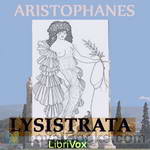 Lysistrata
Lysistrata
Lysistrata read by the Classics Drama Company at DePaul. The Classics Drama Company at DePaul is a new gathering of Thespians and Classicists dedicated to performing and understanding ancient literature. If you live in Chicago and attend DePaul University, we welcome new additions to our group. Contact Dr. Kirk Shellko (kshellko@depaul.edu), if interested.First performed in classical Athens c. 411 B.C.E., Aristophanes’ Lysistrata is the original battle of the sexes. One woman, Lysistrata, brings together the women of all Greece, exhorting them to withhold sexual contact from all men in order that they negotiate a treaty... | |
By: Aristotle (384 BCE-322 BCE) | |
|---|---|
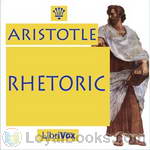 Rhetoric
Rhetoric
The Rhetoric was developed by Aristotle during two periods when he was in Athens, the first between 367 to 347 BCE (when he was seconded to Plato in the Academy), and the second between 335 to 322 BCE (when he was running his own school, the Lyceum). The Rhetoric consists of three books. Book I offers a general overview, presenting the purposes of rhetoric and a working definition; it also offers a detailed discussion of the major contexts and types of rhetoric. Book II discusses in detail the three means of persuasion that an orator must rely on: those grounded in credibility (ethos), in the emotions and psychology of the audience (pathos), and in patterns of reasoning (logos)... | |
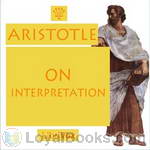 On Interpretation
On Interpretation
Aristotle's On Interpretation (Greek Peri Hermeneias) or De Interpretatione (the Latin title) is the second of Aristotle's six texts on logic which are collectively known as the Organon. On Interpretation is one of the earliest surviving philosophical works in the Western tradition to deal with the relationship between language and logic in a comprehensive, explicit, and formal way. The work begins by analyzing simple categoric propositions, and draws a series of basic conclusions on the routine... | |
By: Caleb Bingham (1757-1817) | |
|---|---|
 Columbian Orator
Columbian Orator
The Columbian Orator, a collection of political essays, poems, and dialogues first published in 1797, was widely used in American schoolrooms in the first quarter of the 19th century to teach reading and speaking. Typical of many readers of that period, the anthology included many speeches celebrating "republican virtues" and promoting patriotism. The Columbian Orator is an example of progymnasmata, containing examples for students to copy and imitate. In his Narrative of the Life of Frederick Douglass, former slave and abolitionist writer Douglass describes how he "got hold" of a copy of the Columbian Orator at the age of twelve, with far-reaching consequences for his life... | |
By: Carolyn Wells (1862-1942) | |
|---|---|
 Technique of the Mystery Story
Technique of the Mystery Story
For one, I have never been one of those who apologize for my frank and never-ending delight in mystery stories. Their mazes have led me unwearied through miles of printed pages, and if only the problem has been worth while, and its pursuit has led along surprising ways, past shuddery thickets and over fearsome bridges, my soul has returned to sober affairs refreshed and content. In a word, here is a remarkable volume which shows us how the wheels go round, not by dogmatic statement, but by an amazing breadth and variety of citation and quotation, showing not only what great mystery writers have thought of their art, but illustrating by apposite examples how they secured their effects... | |
By: Charles Lamb | |
|---|---|
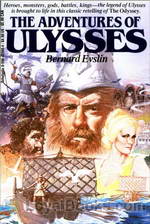 The Adventures of Ulysses
The Adventures of Ulysses
In The Adventures of Ulysses, Charles Lamb re-tells the story of Ulysses’s journey from Troy to his own kingdom of Ithaca. The book uses Homer’s The Odyssey as the basis for the story, but it isn’t a direct translation of the Greek classic. The book is considered a modern version of the epic tale when it was published in 1808. In the preface of the book, Lamb said that he made the narration of the story faster so that more readers would be attracted to it. To begin with, Homer’s Odyssey is already a classic and in re-telling this story, Charles Lamb aimed to make this epic poem more comprehensible to the average person... | |
By: Confucius (551-479 BC) | |
|---|---|
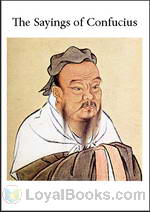 The Sayings of Confucius
The Sayings of Confucius
A treasure trove of wise and pithy sayings, reflections on education, family values, the ideal human being, life and living, politics, art, culture and timeless wisdom, The Sayings of Confucius is indeed an invaluable addition to your bookshelf. Ever since Chinese literary works first began to be translated into European languages, the works of the legendary Chinese philosopher and teacher Confucius, who lived in present day Qufu in the Shandong province of China, more than two thousand years ago, have held universal appeal... | |
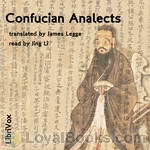 Confucian Analects
Confucian Analects
The Analects, or Lunyu (simplified Chinese: 论语; traditional Chinese: 論語; pinyin: Lún Yǔ; literally "Classified/Ordered Sayings"), also known as the Analects of Confucius, are considered a record of the words and acts of the central Chinese thinker and philosopher Confucius and his disciples, as well as the discussions they held. Written during the Spring and Autumn Period through the Warring States Period (ca. 475 BC - 221 BC), the Analects is the representative work of Confucianism and continues to have a substantial influence on Chinese and East Asian thought and values today... | |
By: Dandin (6th Century) | |
|---|---|
 Twenty Two Goblins
Twenty Two Goblins
These 22 stories are told by the Goblin to the King Vikram. King Vikram faces many difficulties in bringing the vetala to the tantric. Each time Vikram tries to capture the vetala, it tells a story that ends with a riddle. If Vikram cannot answer the question correctly, the vampire consents to remain in captivity. If the king answers the question correctly, the vampire would escape and return to his tree. In some variations, the king is required to speak if he knows the answer, else his head will burst... | |
By: E. Walter Walters | |
|---|---|
 Confessions of a Book-Lover
Confessions of a Book-Lover
"I am of the company of book men who read simply for the love of it," confesses E. Walter Walters, in this gently written tome. Walters documents his habit of "book fishing--" seeking and finding quality volumes in the discount binds at his booksellers, and as a connoisseur of wine might match varieties with courses, he matches his books with the contexts in which he reads them--in the garden, in the bedroom, with friends. He also provides a list of his favorite authors and favorite books, as well as favorite characters from the books he has read, not in a way to impose his choices on other readers, but to share his own personal experiences. | |
By: Edgar Allan Poe (1809-1849) | |
|---|---|
 Raven and The Philosophy Of Composition
Raven and The Philosophy Of Composition
Poe’s famous narrative poem and the author’s reflections on its composition. | |
By: Epictetus (c.55-135) | |
|---|---|
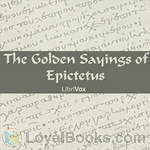 The Golden Sayings of Epictetus
The Golden Sayings of Epictetus
Aphorisms from the Stoic Greek. | |
By: Euripides (480-406 BC) | |
|---|---|
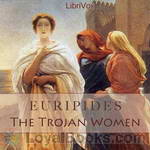 The Trojan Women
The Trojan Women
Euripides' play follows the fates of the women of Troy after their city has been sacked, their husbands killed, and as their remaining families are about to be taken away as slaves. However, it begins first with the gods Athena and Poseidon discussing ways to punish the Greek armies because they condoned Ajax the Lesser for dragging Cassandra away from Athena's temple. What follows shows how much the Trojan women have suffered as their grief is compounded when the Greeks dole out additional deaths and divide their shares of women. | |
 Medea
Medea
Euripides' tragedy focuses on the disintegration of the relationship between Jason, the hero who captured the Golden Fleece, and Medea, the sorceress who returned with him to Corinth and had two sons with him. As the play opens, Jason plans to marry the daughter of King Creon, and the lovesick Medea plots how to take her revenge. | |
By: Eva March Tappan (1854-1930) | |
|---|---|
 Makers of Many Things
Makers of Many Things
How are friction matches made? How do rags and trees become paper? Who makes the dishes on our tables? Published in 1916, this children's book explains the origins of everyday items in an entertaining and informative way. There are plenty of illustrations, so please feel free to read along. | |
By: Frances Jermain | |
|---|---|
 In the Path of the Alphabet
In the Path of the Alphabet
Language: we all use it and few of us think about the form it takes on the page. But how did the transmittal of ideas in written form evolve from Egyptian hieroglyphics to the ABCs in use in most countries around the world today? This work, written by a librarian and scholar, draws on previously published works and also direct correspondence with archaeologists still uncovering secrets in Egypt and Mesopotamia. Her death left this work unfinished, but others were able to polish it for publication. - Summary by Lynne Thompson | |
By: Francis Lister Hawks Pott (1864-1947) | |
|---|---|
 Lessons in the Shanghai Dialect
Lessons in the Shanghai Dialect
A rare textbook on Shanghai dialect by Reverend F. L. H. Pott, an American missionary and educator who lived in China for more than 50 years. - Summary by Xiaoyan Arrowsmith | |
By: Fyodor Dostoyevsky (1821-1881) | |
|---|---|
 Crime and Punishment
Crime and Punishment
A mysterious crime is being plotted in a tiny garret above a dilapidated apartment building in St Petersburg in Russia. The plotter, Rodion Raskolinikov, is a poor student who has delusions of ridding the world of “worthless vermin” and counter balancing these crimes with good deeds. He commits a murder to test his own theories and prove that crime comes naturally to the human species. Crime and Punishment is a path-breaking novel of ideas that changed the course of novel writing in the 20th century... | |
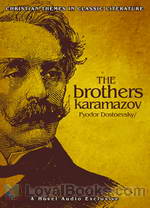 The Brothers Karamazov
The Brothers Karamazov
Set in 19th century Russia, The Brothers Karamazov (Russian: Братья Карамазовы) is the last novel written by the illustrious author Fyodor Dostoyevsky who died a few months before the book's publication. The deeply philosophical and passionate novel tells the story of Fyodor Karamazov, an immoral debauch whose sole aim in life is the acquisition of wealth. Twice married, he has three sons whose welfare and upbringing, he cares nothing about. At the beginning of the story, Dimitri Karamazov, the eldest son who is now a twenty-eight year old war veteran, returns to his home town to claim the inheritance left to him by his dead mother... | |
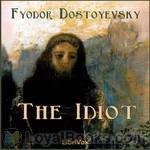 The Idiot
The Idiot
The extraordinary child-adult Prince Myshkin, confined for several years in a Swiss sanatorium suffering from severe epilepsy, returns to Russia to claim his inheritance and to find a place in healthy human society.The teeming St Petersburg community he enters is far from receptive to an innocent like himself, despite some early successes and relentless pursuit by grotesque fortune-hunters. His naive gaucheries give rise to extreme reactions among his new acquaintance, ranging from anguished protectiveness to mockery and contempt... | |
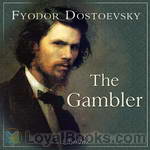 The Gambler
The Gambler
The Gambler is a short novel by Fyodor Dostoevsky about a young tutor in the employment of a formerly wealthy Russian general. The novella reflects Dostoevsky's own addiction to roulette, which was in more ways than one the inspiration for the book: Dostoevsky completed the novella under a strict deadline so he could pay off gambling debts. | |
 Possessed
Possessed
| |
By: Gaius Petronius Arbiter | |
|---|---|
 The Satyricon
The Satyricon
Satyricon (or Satyrica) is a Latin work of fiction in a mixture of prose and poetry. It is believed to have been written by Gaius Petronius, though the manuscript tradition identifies the author as a certain Titus Petronius. As with the Metamorphoses of Apuleius, classical scholars often describe it as a "Roman novel", without necessarily implying continuity with the modern literary form.The surviving portions of the text detail the misadventures of the narrator, Encolpius, and his lover, a handsome sixteen-year-old boy named Giton... | |
By: George Bernard Shaw (1856-1950) | |
|---|---|
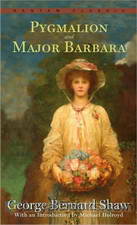 Pygmalion
Pygmalion
If you've watched and loved the delightful musical My Fair Lady, then you'd love to read the wonderful play on which it is based. Pygmalion by George Bernard Shaw is equally engrossing and as full of charm, wit and underlying pathos. First performed on stage in 1912, Pygmalion takes its title from the Greek myth of Pygmalion and Galatea. In the ancient story, a brilliant sculptor, Pygmalion falls in love with one of his own creations, a ravishingly beautiful sculpture whom he names Galatea. He propitiates Aphrodite, who grants his wish that his statue would come to life and that he could marry her... | |
By: George F. Dillon (1836-1893) | |
|---|---|
 Song Celestial; Or, Bhagavad-Gîtâ
Song Celestial; Or, Bhagavad-Gîtâ
| |
By: George Lillie Craik (1798-1866) | |
|---|---|
 Compendious History of English Literature and of the English Language, Volume I
Compendious History of English Literature and of the English Language, Volume I
The History of English Literature and Language may be recommended to the student as a guide always sure, and as satisfactory as its limits will admit, to the gathered harvest of a thousand years -- from ALFRED the Great to VICTORIA -- now existing in a language radically identical for the whole of that period, the common property of all who are born to its use, a personal endowment not to be limited by local accidents, but the rightful possession of those who "claim SHAKESPEARE's language for their mother tongue... | |
By: George Lovell Cary | |
|---|---|
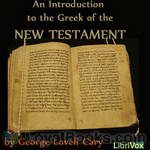 An Introduction to the Greek of the New Testament
An Introduction to the Greek of the New Testament
A collection of lessons (primarily in grammar) for New Testament Greek (also known as Koine) collected by a professor at Meadville Theological School of Pennsylvania. There are over 80 short lessons, each covering an aspect of verbs, nouns, etc. | |
By: Gerard Nolst Trenité | |
|---|---|
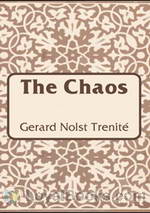 The Chaos
The Chaos
“The Chaos” is a poem which demonstrates the irregularity of English spelling and pronunciation, written by Gerard Nolst Trenité (1870-1946), also known under the pseudonym Charivarius. It first appeared in an appendix to the author’s 1920 textbook Drop Your Foreign Accent: engelsche uitspraakoefeningen. | |
By: Grenville Kleiser (1868-1953) | |
|---|---|
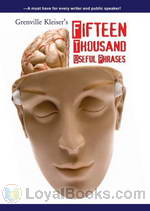 Fifteen Thousand Useful Phrases
Fifteen Thousand Useful Phrases
Fifteen Thousand Useful Phrases is a practical handbook written by Grenville Kleiser. Grenville is known for his writings on humor, positive thinking and inspirational thought. This serves as a handbook of pertinent expressions, striking similes and terms for embellishing speech and literature. This book can be used to improve vocabulary for reading, writing and speaking alike. Through mastery of words, the most powerful and perfect expression of thought can be delivered orally. Choosing the correct words conveys ideas in a crisp and clear way that will hold and audience's attention... | |
By: H. L. Mencken (1880-1956) | |
|---|---|
 American Language
American Language
"It was part of my daily work, for a good many years, to read the principal English newspapers and reviews; it has been part of my work, all the time, to read the more important English novels, essays, poetry and criticism. An American born and bred, I early noted, as everyone else in like case must note, certain salient differences between the English of England and the English of America as practically spoken and written—differences in vocabulary, in syntax, in the shades and habits of idiom, and even, coming to the common speech, in grammar... | |